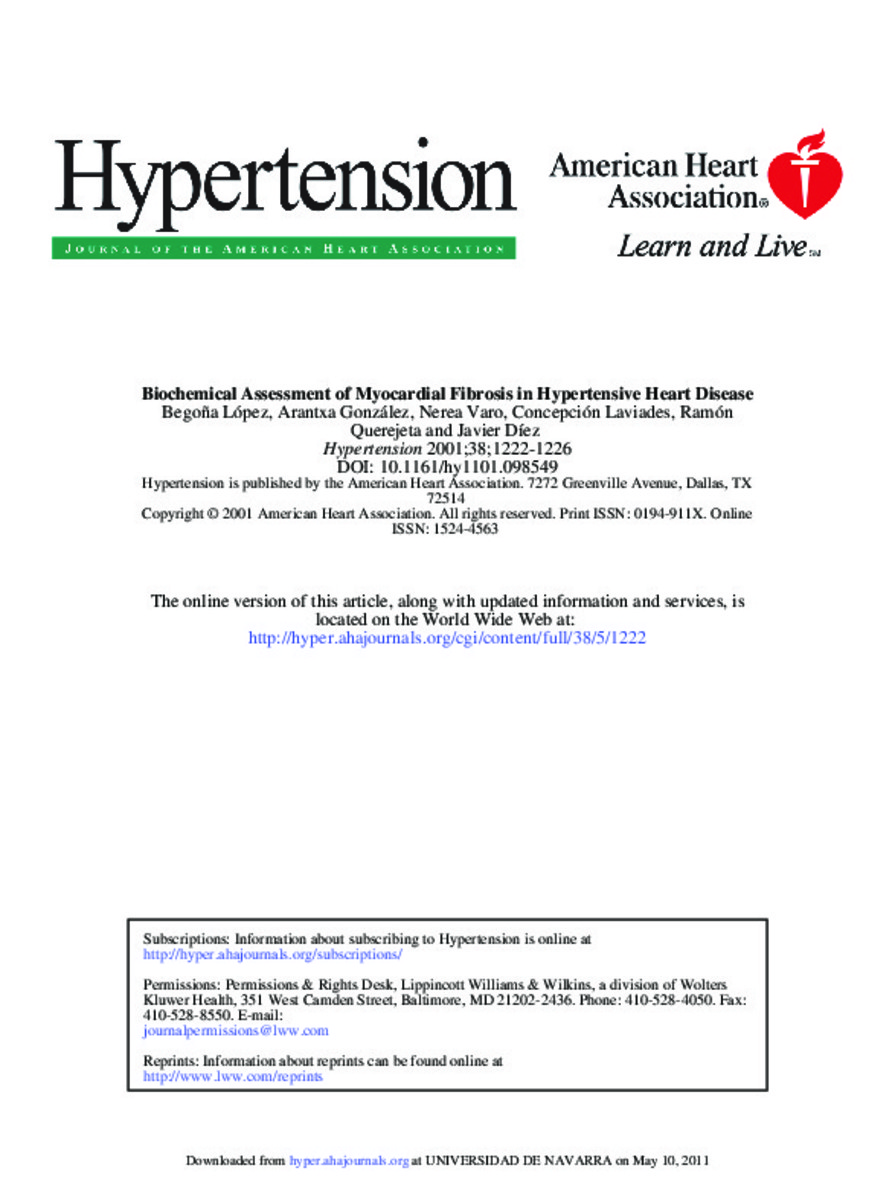Biochemical Assessment of Myocardial Fibrosis in Hypertensive Heart Disease
Palabras clave :
Collagen
Hypertension, essential
Myocardium
Remodeling
Renin-angiotensin system
Fecha de publicación :
2001
Editorial :
American Heart Association
Cita:
Lopez B, Gonzalez A, Varo N, Laviades C, Querejeta R, Diez J. Biochemical Assessment of Myocardial Fibrosis in Hypertensive Heart Disease. Hypertension 2001 Nov;38(5):1222-1226.
Aparece en las colecciones:
Estadísticas e impacto
0 citas en

0 citas en

Los ítems de Dadun están protegidos por copyright, con todos los derechos reservados, a menos que se indique lo contrario.











